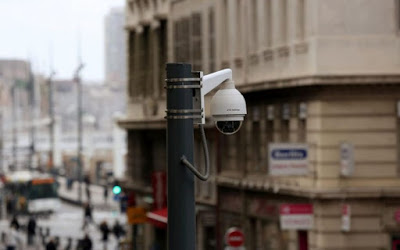Marseille’s fight against AI surveillance
 |
| Morgan Meaker 09/04/2020 |
The southern French city, once synonymous with urban crime, now encapsulates the spread of AI surveillance driven by Chinese companies.
In 2016, Netflix launched its first European production – a twisty political drama titled “Marseille.” Set in the historic port city, the series starred Gerard Depardieu and was supposed to be France’s answer to the hit U.S. TV show House of Cards. Instead ‘Marseille’ was widely panned for amplifying stereotypes about the city and reheating its former notoriety for crime, corruption and Kalashnikovs. One critic at the French newspaper Le Monde described the show as “une bouse” – or, in English, “cow shit.”
But beyond its exaggerated dialogue and theatrical sex scenes, the show illustrated the lure of surveillance for a city administration desperate to replace its reputation as the “French capital of crime” with a lucrative tourism industry. In the second season, the show’s deputy mayor suggests sacrificing Marseille’s arts budget for state-of-the-art CCTV cameras. “The city deserves to be safer,” she reasons.
The real-life deputy mayor, Caroline Pozmentier, shares a similar zeal for urban surveillance. She has advocated for Marseille to claim the title of Europe’s first “safe city” – a term tech companies use to describe cities using their products to reduce crime. “We start from the principle that without security, there is no economic and tourist development possible,” Pozmentier said in an 2016 interview, describing her new surveillance initiatives to Marseille’s La Provence newspaper.
Throughout her tenure, Marseille has been experimenting with “safe city” tools that integrate artificial intelligence (AI), citizen data and local government surveillance networks. Pozmentier declined multiple requests for comment on this story but a spokesperson for Marseille’s town hall confirmed the city is already using “predictive policing” technology that allows authorities to use big data to “anticipate” crimes likely to take place in the future. Last month, the city administration was in court, defending its right to roll-out “intelligent video surveillance” that will use AI to search through surveillance footage, automatically spot crimes and alert police officers to suspicious behavior.


